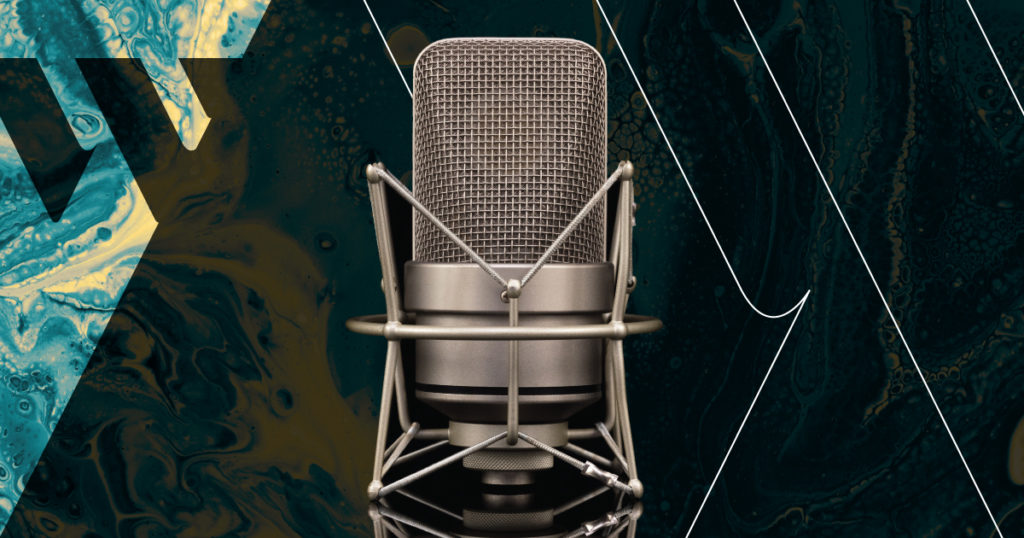6.3.20 | read time: 5.5 min
Writing The Perfect Radio Script
116 & West
Whether you use Pandora, Spotify, or the regular ole AM/FM option in your car, most of us absorb radio advertising in one way or another. In fact, about 270 million people listen to traditional radio on a weekly basis, 70 million people listen to Pandora at least once monthly, and there are approximately 109 million people with ad-supported Spotify accounts.
No matter where you hear these radio ads, they all start off as a concept and are then fleshed out as a script. Having the foundation of a well-written script helps ensure that the money you put toward radio advertising is well spent.
Through traditional and nontraditional radio, there’s a large opportunity for your brand to reach a lot of people, but how can you ensure that you’ll speak to this audience effectively? I sat down with our director of production, Jodi Sali, to discuss the perfect radio script. Jodi has been with 116 & West for four years and worked in radio for 23 years prior to switching to the agency side; he knows what he’s talking about.
Before you put pen to paper
Before you really get going on anything, it’s important to consider a campaign’s entire media plan/strategy. Is this a stand-alone radio spot? Or is it working in tandem with other components—TV commercials, digital ads, print placements? The overarching strategy needs to be considered before you start writing your script because, ideally, your radio ad should complement the campaign’s overall goal/message.
After taking the overarching strategy into account, Jodi’s first piece of advice is to consider the amount of research that needs to be done before putting pen to paper or, more likely, fingers to keyboard. “You have to know who you’re talking to and what you’re talking about. The more knowledge you have about a specific company or product, the better prepared you are to write a great script,” says Sali. A true team player, Jodi is exemplifying one of our agency’s top mottos: No one knows our client’s business better than we do—except for the client themselves.
Knowing your client’s business and the product is one step, but according to Jodi, the next step is knowing your audience. It’s imperative you get to know your audience and what will motivate them to make the brand’s desired action. Learn what they value, and learn to speak to them in a way that resonates. Sometimes a client will explicitly tell you who their audience is, but other times they aren’t sure and are coming to an agency to help identify their target. Whatever the case, it’s essential you figure out who is using your product or is interested in your business. Learn their income level, their gender, their age, and how they generally buy.
The language you use is also important; it should be digestible and retained by the majority of listeners. If you’re writing a script that covers content that tends to confuse most people—insurance queries, legal disputes, etc.—do your best to stick to layman’s terms rather than using jargon particular to the specific industry. If you determine that the target audience is middle-aged and older, it would be best to avoid using slang terms and internet lingo that they may not understand.

Don’t do too much
According to Jodi, knowing the company, product, and audience should take up about 80% of the script-writing process. The remaining 20% consists of finding the one little nugget of information you want your listener to retain. Depending on who is voicing it, you typically can only cram 85 words in a 30-second spot due to the speed in which its read. With so few words, it’s not in your best interest to squeeze multiple messages into one radio commercial.
Though not a radio commercial, Jodi’s favorite example of doing this well is Tide’s most recent Super Bowl commercial. “They didn’t try to shove their formula down your throat, and they didn’t try to sell you on a low price point. They left you with one simple takeaway: our stuff is so good that you can wait to wash,” Jodi said about the spot.
In today’s age, having one strong messaging point is not a detriment. “You don’t have to tell the whole story. Guess what? Google exists and it’s super cool,” Jodi explained. Because we have so many resources, a good radio spot should help push listeners to further research a company or product. If your radio commercial was successful enough to push a listener to look you up, hopefully, they have a good experience once they land on your website. We have some tips for you on that in our recent “What is UI/UX and Why Is It Important?” blog.
Where & when
Another thing to consider when you’re writing a radio spot is placement. If you have the opportunity to collaborate with the media department, or whoever is in charge of the ad buy, Jodi would advise doing so. According to the radio veteran, “knowing where, how often, and for how long a spot will run should affect the way you write it.” If you know the spot you are writing is going to run 10x a day for 10+ days, do your best to avoid the “yell sell” tactic as it has the potential to annoy listeners and turn them away, especially at that frequency. Consider avoiding wacky sound effects if you know the spot is going to exclusively run on a smooth jazz station.
Time and deadline permitting, Jodi would strongly advise taking a step back upon completing the first draft of your script. “Remove yourself from the process a little. If you leave it alone and sleep on it, it helps you be more objective about your own work,” says Jodi.
Allow room for edits
Lastly, don’t get too attached to your script. “A lot can change from the written version of a spot to the produced version,” Jodi explained. To him, a radio commercial is less of a piece of writing, and more a piece of music. There are rhythm, cadence, and tonal qualities to a radio commercial. Certain words will look great on paper but don’t work well when spoken. It’s okay to make edits when you move into production.
Want some help?
If you find yourself needing guidance with radio advertising, let us know at whatsup@116andwest. Jodi is one of the best in the game; let him help you.

